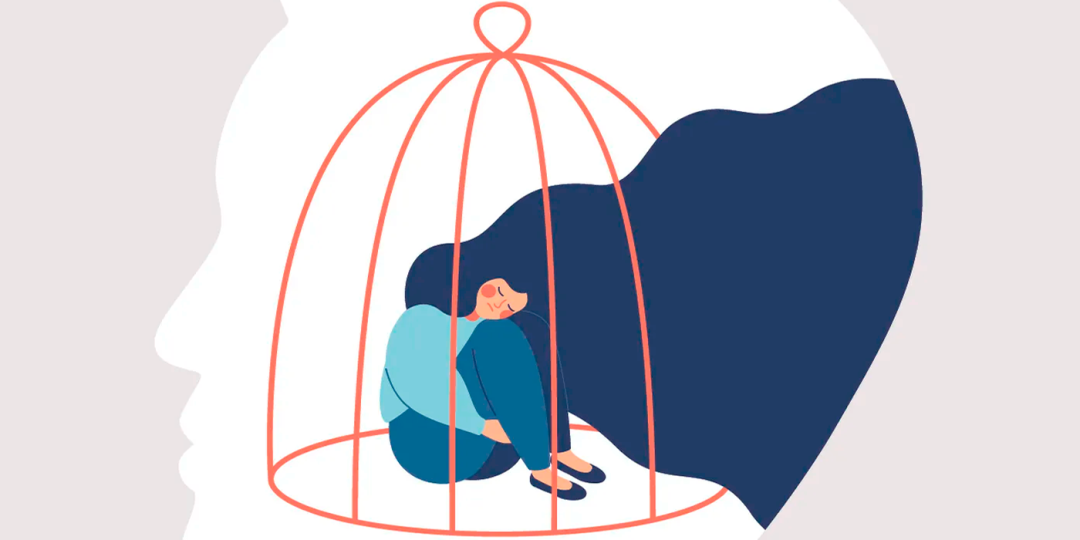Violence inhibitor dysfunction is a cause of abusive relationships
When entering into any kind of relationship, and especially when it comes to romantic relationships and starting a family, people, as a rule, expect to receive mutual benefits. Of course, there are rarely relationships without flaws and problems that, one way or another, have to be solved or accepted as they are. But what people definitely do not want from them is harm in any of its forms, including physical and psychological. The problem of abusive relationships has a fairly significant place in our society. It can be given many possible explanations and different solutions. But what we should pay attention to in the first place is the people themselves who seek to harm their close ones.
It is known that the ability to perceive the suffering of other people plays an important role in the inhibition of harm. This is what the Violence Inhibition Mechanism (VIM) model tells us about[1][2]. People with a fully functioning violence inhibitor will obviously be predisposed not to harm others. Often, the very intention to take the actions leading to harm will already cause an aversive reaction and inner resistance in them. And such a reaction will necessarily appear as an unconditioned reflex in response to direct observation of another person's suffering, especially non-verbal distress cues such as sad and fearful expressions or crying. The result of violence inhibitor dysfunction in humans is increased levels of instrumental aggression, antisocial behavior, and even psychopathic traits.
As one Canadian study of victims of abuse in heterosexual relationships shows, up to 30% of abusers meet the criteria for psychopathy, and it is exactly these people who are the strongest predictor of long-term violence in relationships. Also, due to a dysfunctional violence inhibitor, they easily ignore distress cues from their partners unless they can use them for their own manipulative purposes. For example, by manipulating fear, they can intimidate their partners, force them to have sexual contact, or take substances. And the main conclusion of the study is that psychopathic abusers have the worst effect on the mental health of their partners, leaving them with post-traumatic stress disorder[3].
Another study confirmed that, according to the VIM model, violence by husbands toward their wives is associated with diminished sensitivity to expressions of fear. Also, their psychopathic tendencies were associated with misidentifying fearful expressions as neutral[4]. And one more study found that reduced relationship satisfaction is associated with the presence of callous and unemotional traits in a partner. Psychological aggression and short relationship duration, in turn, are associated with antisocial behavior. And physical aggression is associated with three components of psychopathy at once, including the two already mentioned and impulsivity[5]. The situation is similar with sexual satisfaction; it is lower in those women whose partners have psychopathic traits[6].
A huge review of research on the impact of psychopathy on family and other relationships was made by Professor Liane J. Leedom[7]. It addresses the claim that psychopathic individuals change their partners very easily, so they are characterized by sexual promiscuity and multiple short-term marital relationships. Such a claim is questioned in view of the evidence of psychopathic individuals who maintain long-term relationships and, unfortunately, cause harm to their partners. Relationships with them are often assessed as unsatisfactory, characterized by frequent conflicts and even physical violence. Also, psychopathic individuals tend to stalk their former partners and can behave vindictively when threatened with abandonment. And finally, cheating is common in such relationships.
Why does anyone get into relationships with psychopaths in the first place? As research shows, psychopathic men tend to mimic prosocial personality traits in order to appear appealing to women, and they do so to a more pronounced extent than non-psychopathic men. They skillfully present themselves as attractive romantic partners, even if they have absolutely no interest in committed relationships[8][9].
It is worth briefly mentioning how psychopathic individuals behave in other types of relationships. When making friendships, they only try to satisfy their material and social needs while being cruel and often not helping others. However, their friends are reluctant to break off such relationships, which can be explained by the psychopaths' effective manipulation and the establishment of a strong social bond with them. As parents, psychopathic individuals act in an obsessive, hostile, and neglectful manner toward their children, leading them to psychological traumas, behavioral problems, problems with settling down in life, poverty, and substance use. Problems are also encountered when normal parents have children with psychopathic tendencies. From such children, they can expect abuse, ignoring their problems, and parasitism. Also, a significant problem occurs when there are both normal children and those with psychopathic traits in the family. It is violence against siblings that is the most common form of domestic violence in Western countries. The same is also true for domestic sexual violence[7].
By reviewing all the facts listed here, we can see how terrible the consequences of relationships with individuals who have the violence inhibition mechanism dysfunction are. It is this pathology and the psychopathic traits that arise from it that well explain why some partners can behave cruelly, spoil relationships, manipulate others, and negatively affect the mental state of their close ones. Relationships with them should clearly be avoided, and in the long term, we need to work on developing therapeutic approaches to treat such a pathology. The quality of romantic, family, and other relationships in society will greatly increase if people begin to take seriously the problem of violence inhibitor dysfunction in some individuals.
